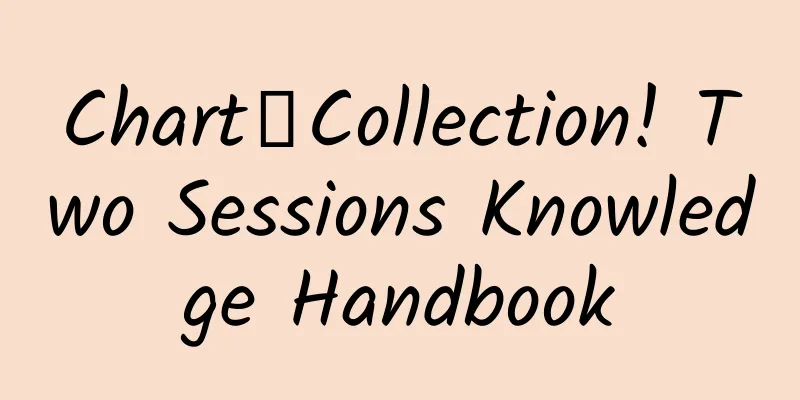Exclusive interview with Umeng: Focusing on data services for the mobile development ecosystem

|
On December 9, Umeng released its new data strategy "Umeng Data Factory" and two data products "User Rating" and "Umeng Micro Community" in Beijing. After more than four years of development, the mobile Internet data accumulated by Umeng has gradually shown its value. In 2014, mobile development was very popular. Whether it was services for mobile developers or third-party tools, the entire ecosystem was well built. As a service platform for mobile developers, Umeng provides underlying data services in the mobile ecosystem. As competition in the field of big data mining becomes increasingly fierce, what is Umeng's development strategy?
Focus on data services Jiao Yue, Vice President of Umeng, said in an interview with 51CTO: "Umeng has limited resources and capabilities. We need to focus on four aspects: social, message push and core data based on statistical analysis. This year, we will focus our resources on four product lines: statistical business line, social business line, message push business line and our data business line." Jiao Yue revealed that Umeng has accumulated a large amount of data in the past four years. These data are not only large in quantity, but also of high dimension and value. He said: "Umeng's data business will be open to data cooperation, and the premise must be to ensure the security of developers' data and the privacy of users." Based on this business positioning, two products, "User Rating" and "Umeng Micro Community", were launched at this press conference. For mobile developers, how to quickly and comprehensively evaluate the value of devices and users is a difficult problem. "User Evaluation" is a set of device information preprocessing + quantitative evaluation system of device value to solve this problem. It is understood that "User Rating" combines device hardware information, traffic information, APP usage behavior, user interest tags, etc., and uses an algorithm that fits the business scenario to measure the risk of the device and its value to the APP in a quantitative way. Ye Qian, senior technical director of Umeng, gave an example and said that the labels provided by Data Factory can help game apps in many ways: first, it helps the game to determine whether the users it acquires are real game enthusiasts; second, through labels, the game app can be personalized according to user characteristics to provide a better user experience; third, it helps the game app to do more accurate promotion. It is understood that the data dimensions of "user rating" cover 20 vertical fields and more than 400 user interest tags, and conduct a comprehensive assessment of end users in terms of consumption capacity, activity level, behavioral preferences, and user attributes. "Umeng Micro Community" is a more interesting thing. It is both an SDK and an independent APP: developers can directly build a community module in the application through the SDK; developers without applications can export and generate an independent community APP with one click and directly go online for operation. It is understood that the SDK of Umeng Micro Community is open source and supports developers to deeply customize it according to their own needs. Jiao Yue introduced that the content of Umeng micro-community supports docking with mainstream social platforms. The proprietary account system or third-party account system can be imported into the client and shared on other social platforms through these accounts. Building an internal closed loop In the rapidly developing field of mobile development, it is not easy to gain a solid position. Jiao Yue said that Umeng has a strategy since last year, hoping to cooperate with companies that are not in direct competition but are the best in terms of products and quality, so as to mobilize such a small ecosystem and alliance and provide them to developers as quickly as possible. He said: "Everyone has found that Umeng's official website recommends surrounding partners. After our product managers and basic research and analysis, we have concluded that their products must be the best in this field." As for Umeng internally, he believes that a small closed loop should be built. Jiao Yue said: "We noticed that developers are very concerned about whether they can use more modules during the product development stage; they are very concerned about the quality of their channels, the rate of promotion, and user retention during the promotion stage; and they are very concerned about how to better serve loyal users, bring back low-frequency users and lost users, and how to better communicate with users and coordinate with each other during the operation stage. We are more concerned about what kind of work can be done in the closed loop of these aspects. We really help them at different stages and provide tools to help them at different stages." |
<<: Qualcomm announces $40 million strategic investment in touch technology
>>: Introduction to the use of Android classic sliding menu SlidingMenu
Recommend
Jia Yueting suddenly spoke on Weibo: Release of new Faraday V9 model
Jia Yueting said: "Thank you for your attent...
Year-end review: Top 10 most popular marketing cases in 2018
It’s the end of the year again, and it’s time for...
This Apple Watch flaw is so embarrassing
As we all know, Apple Watch can detect a large am...
The essence of optimizing information flow advertising in 4 industries including home furnishing, decoration, and tourism!
Today, the editor continues to bring you the esse...
How to operate a flash sale product well?
As a powerful means to attract users, flash sale ...
Plant these flowers now and harvest a sea of flowers in summer!
Spring is here, and it's time to enjoy the fl...
50 questions about Douyin influencer promotion!
50 questions about Douyin influencer promotion ! ...
National Fire Fighting Day丨Today, thank them!
The "Chongqing kids" who fight day and ...
Information flow advertising | APP materials for tools, social networking, financial management, maternal and child care and other industries are exposed!
Friends often ask me why other people’s apps run ...
Ouch! A mouse is pulling a winter melon!
Audit expert: Li Weiyang Well-known science write...
A complete guide to selling goods in private domain "welfare groups"
Community is one of the necessary operating metho...
New version of mobile QQ released! This is the first update after the Ministry of Industry and Information Technology took transitional administrative guidance on Tencent
According to data from major app stores, Tencent ...
"Taming" proteins in a test tube: directed evolution of enzymes
The continuation of life requires energy, and the...
up to date! Baidu 360, Sogou or Shenma search, which channel has more traffic?
Many people believe that China has a large popula...
How to correctly place YouTube TrueView video ads
Today, I will focus on one of the ad types - YouT...









